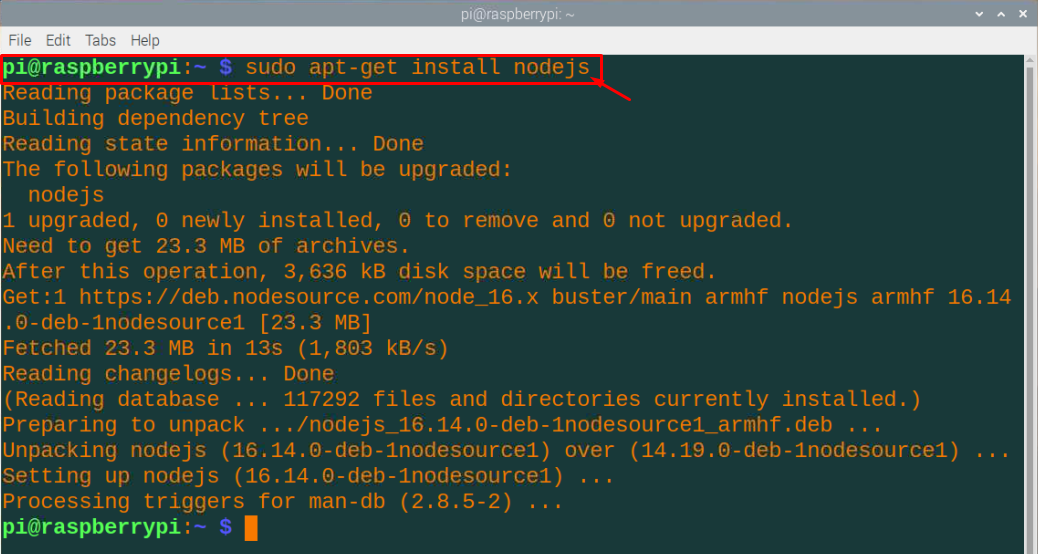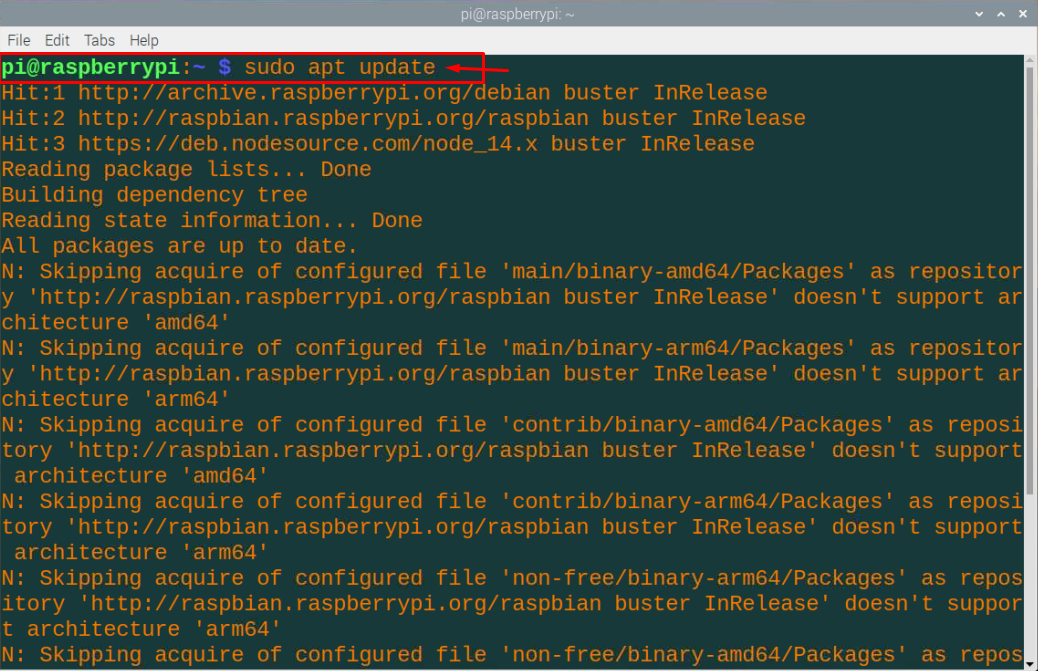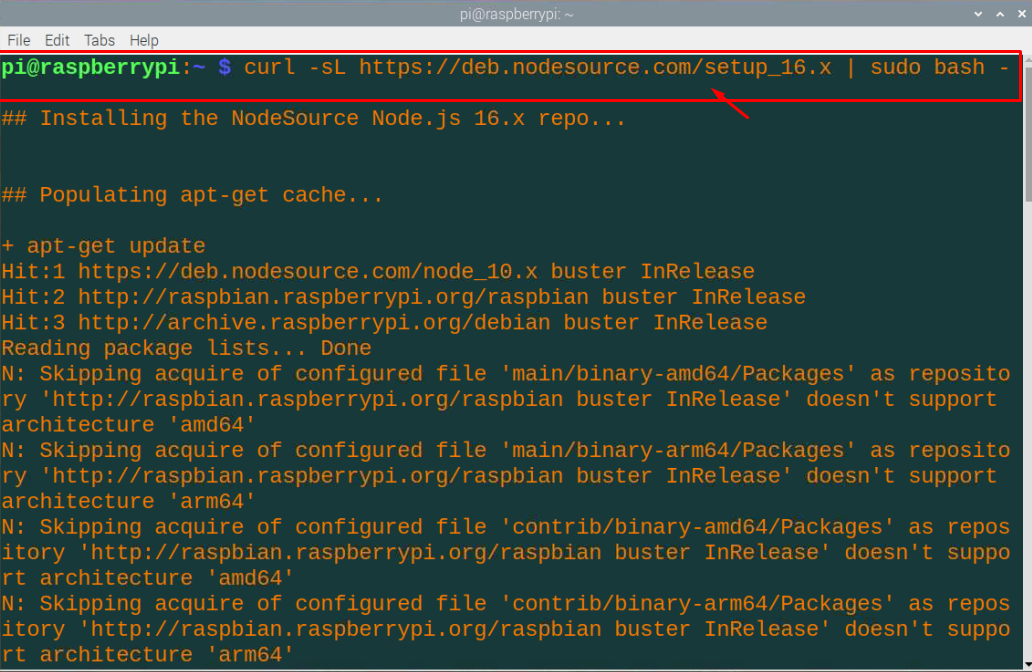Node.js is an open-source and cross-platform runtime environment used to execute JavaScript outside the web browser. It includes a robust set of features that will assist an individual in developing real-time mobile applications or websites. If someone wants to build a fast and scalable web server application with the help of JavaScript, then he should pick the Node.js platform.
For the Raspberry Pi users, installing the latest Node.js version is relatively straightforward and this article will be an easy guide to install Node.js successfully on your Raspberry Pi device.
How to install latest Node.js on Raspberry Pi
To install the latest version of Node.js on Raspberry Pi, you should carefully execute the below mentioned commands provided in each step to successfully install it on your device.
Step 1: Before the installation, you will need to perform package updates and for that purpose the following commands will help you:
$ sudo apt upgrade
Step 2: In the next step, you will need a node source repository which contains the latest version of Node.js. To add a node source repository, the following command will need to be executed in the terminal:
Step 3: After executing the above command, you are now ready to install Node.js on Raspberry Pi by running the following command in the terminal:
$ sudo apt install nodejs[/cc]
Once Node.js is installed on your Raspberry Pi device, you can then check its version with the help of executing the following command in the terminal. $ node --version From the above command, you can see that the latest version of Node.js is installed on your Raspberry Pi device. ConclusionThe Raspberry Pi device also provides an equal opportunity to the developers and with the latest Node.js version loaded on their Raspberry Pi device, one can easily power up their websites or mobile applications by executing the JavaScript outside the web browser. The above guidance will help you install the latest Node.js version on the Raspberry Pi device so that you should begin your professional web development journey with ease. |




